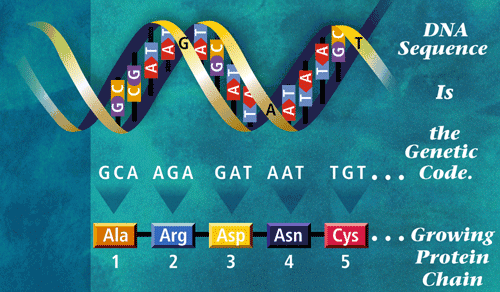There is a Mendelian dominant B and a recessive b. I don't know if a bald man is BB, or Bb, or bb. The other is the double helix full of "CGTA"s. What kind of sequence makes a man a Bbald man? How is genotype coded into DNA?
2 Answers
What you are asking about is much more complex than simple Mendelian genetics.
When genetics was first studied the pea plant was used, as you know, and Mendel lucked out in that the genes and their expressions were very strait forward.
As far as baldness goes, there are any number of factors that are involved and probably several genes.

The genetics of male pattern baldness (MPB) are not yet fully understood. Most likely there are multiple genes that contribute towards MPB, the most important of which appears to be the Androgen Receptor gene, located on the X chromosome inherited from the mother.
This gene is recessive. The mother carries it and the son shows the baldness. The hormone androgen is made by the male and that turns on the gene given by the mother. A bald man would be zero and b. As he has only one X (from mom) with the recessive gene. It would not be either BB, Bb or bb.
As for your second question, no one yet knows the sequences in the DNA.
As for your last question, genotype is what is in the genes and phenotype is what you see.
Genes are made of a series of codons (three bases) that are strung together to form the instructions for making proteins. In this case the Androgen Receptor gene.

The genetics of male baldness is not entirely understood and multiple genes are involved. This is often the case for many traits or phenotypes.
Baldness can be inherited through either the maternal or paternal side. So far, we know that having both the genes 20p11 and AR results in a seven times increase in going bald. We have also identified another gene called APCDD1 that has been linked to baldness . Having a heterozygous mutation Leu9Arg on the APCDD1 gene causes baldness, meaning even if you inherited this mutation from one parent, you would still experience hair loss (Shimomura et al., 2010 ).
So, it's not a straight-forward case of inheriting one dominant gene from your mother or a recessive gene from each parent. Either of those situations may be true, and there are likely more genes connected with baldness that have yet to be discovered.



